Violence against LGBT Australians rocketed during the marriage equality vote, research shows
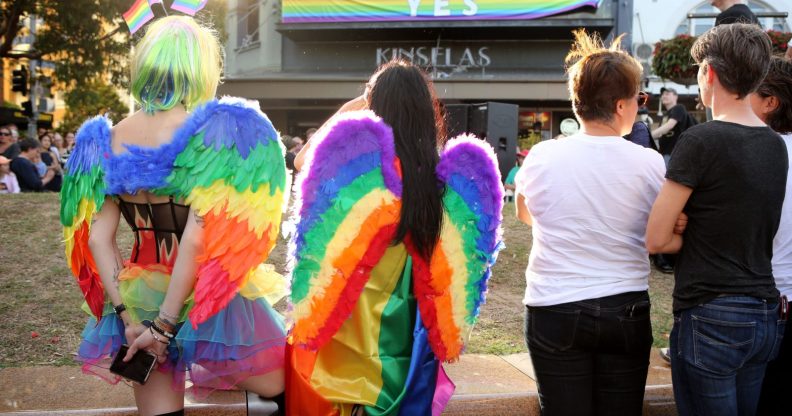
(Photo by James Alcock/Getty Images)
LGBT+ Australians reported double the amount of harassment and assault during the postal survey period, according to new figures.
90% of the 9,500 LGBT+ individuals and allies surveyed said that the marriage equality vote had a negative impact on them “to some degree”.
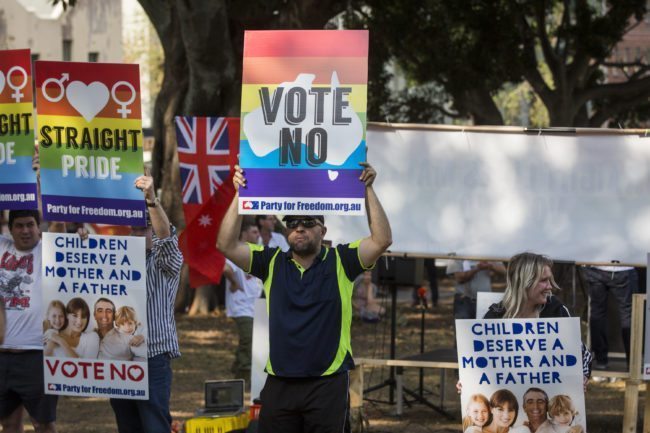
Many LGBT+ individuals reported that negative campaigning impacted their mental health (Brook Mitchell/Getty Images)
Last month, Australians gave their overwhelming backing to equal marriage in a public postal vote, by a margin of 61.6% to 38.4%.
Now the Australian Parliament is debating a bill that would legalise same-sex marriage across the country.
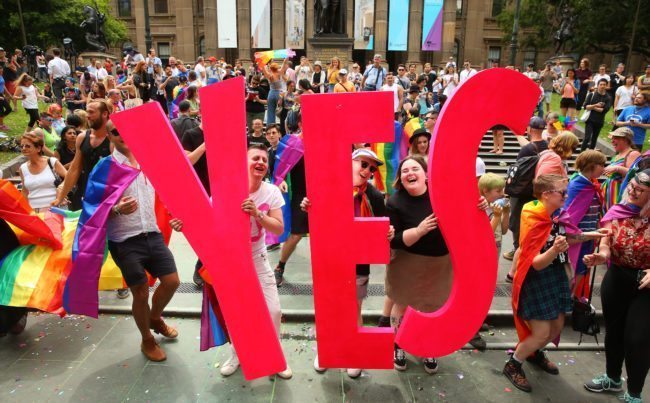
(Getty)
Results of the research – conducted by The Australia Institute and the National LGBTI Health Alliance – revealed a troubling picture of the health of LGBT Australians during the postal vote.
LGBT+ respondents said verbal and physical assaults in the three months following the announcement of the vote more than doubled when compared to the six months beforehand.
Almost 70% of LGBT+ people said they “avoided being with people in general” at least some of the time as a method of coping.
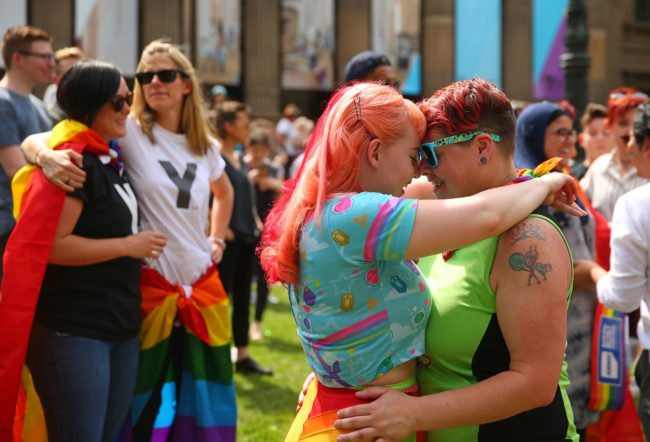
(Getty)
And nearly 80% of LGBT+ people and around 60% of allies said that they found the marriage equality debate considerably or extremely stressful.
This contributed to a rise in depression and anxiety by a third among LGBT+ people.
“The public debate over the equality of our bodies, relationships and feelings has been exhausting and frequently painful,” said Rebecca Reynolds, who is executive director of the National LGBTI Health Alliance.
“These aspects of who we are should never have been the subject of public discussion; rather, they should be celebrated in everyday life.”
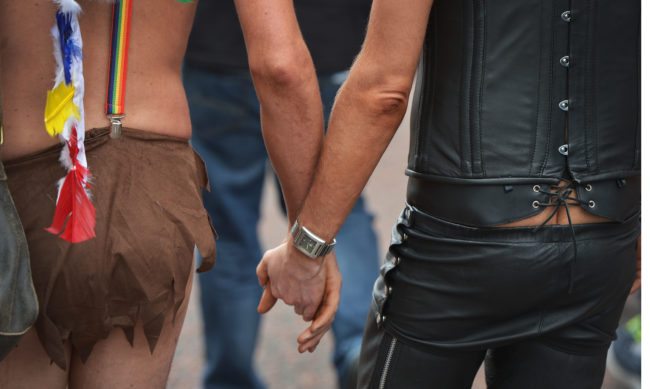
Ireland welcomed same-sex marriage back in 2015 (Photo by Charles McQuillan/Getty Images)
The findings echoed what many opposed to the postal vote had been advocating – that the postal vote would be damaging to LGBT+ people’s mental health.
Research conducted after the Irish same-sex referendum revealed similar results, with most LGBT+ people feeling anxious or angry in response to anti-marriage campaigning.
But the debate continues, as issues of religious liberty in relation to LGBT+ rights are explored by the Parliament.

